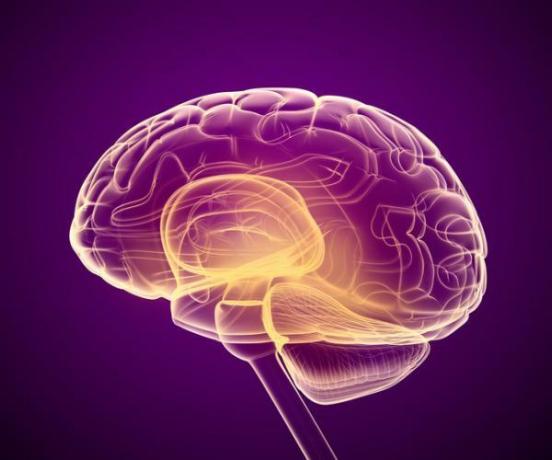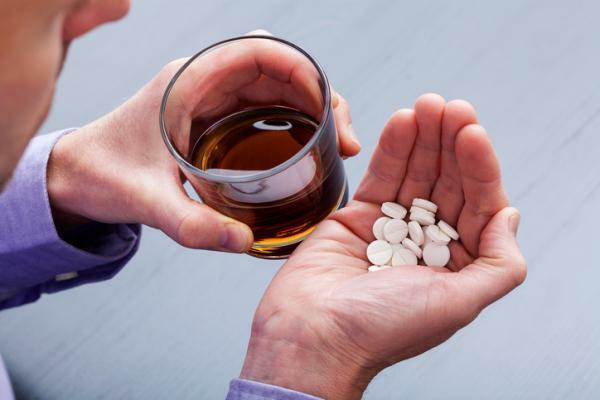
Psychoneuroendocrinoimmunology or PNEI comprises the study of the relationship and interconnection existing between the control and regulation mechanisms of the body in order to maintain the homeostasis.
This interrelation of the different neurological, immunological, and endocrinological subsystems has its expression at the behavioral level, in the actions we carry out and at a psychological level, represents the state of well-being or discomfort with which we live in each moment.
In this PsychologyOnline article, we will talk about What is Psychoneuroendocrinoimmunology.
Index
- Biological bases of Psychoneuroendocrinoimmunology
- System imbalances
- Depression explained through the prism of PNEI
- Approach and treatment of depression through nutrition
- Measures to be taken
- Conclution
Biological bases of Psychoneuroendocrinoimmunology.
The three major systems, together with the psychological, make up four neuroendocrine axes with their respective chemical messengers (neurotransmitters, hormones, and cytokines).
The four axes are:
- Hypothalamic-pituitary-adrenal (HPA) axis
- Hypothalamic-pituitary-gonadal (HPG) axis
- Hypothalamic-pituitary-thyroid (HPT) axis
- Locus Coeruleus-sympathetic-adrenal (SAM) axis
The excessive actions of each of these systems individually or within the set of relationships, condition normal functioning and when there are excesses, the same self-regulating mechanism tries to achieve the basic balance or biological homeostasis.
System imbalances.
When the system is altered, due to an internal or external cause, there are inappropriate emotions, thoughts and behaviors that end up stressing the body, producing pain, depression, lack of development, visceral physiological alterations etc. and ultimately a specific clinical picture within which the disease is established.
In the case of the psychoneurological subsystem, its components are the neurotransmitters, neuromediators and neuromodulators (the latter in greater numbers - hypothalamic peptides, enterohormones and cytokines -). In the immunological subsystem, interleukins and immunomodulators; in the endocrine, hormones and peptides and finally in the psychological subsystem the limbic, paralimbic and pineal circuits with their corresponding hormones and neurotransmitters.
These subsystems are capable of interacting with each other or individually and individually by themselves apart from the rest. The relationship between the four systems is observed in the expression of receptors and common substances in the cells of each one; Thus, cytokines, hormones, neurotransmitters and neuropeptides find specific receptors distributed throughout the body's tissues.
In this way, the deregulation of the PNI system produces a disease(somatic or psychic) and any pathology that occurs on the physical or psychological plane will inevitably affect an alteration in other strata of the individual's organic system.
The psychological repercussion exceeds the organic one because each subject responds differently and individually to the same level of stress. Thus, depending on the cognitive-affective evolution from the social, educational and cultural characteristic of the individual, will determine the more or less adaptive response of the subject to the environment concrete.
Health itself is the set of subsystems, interactions and interrelationships of the internal mechanisms of the body with the aim of strike a balance to achieve an internal environment that facilitates the proper functioning of the body itself, leading to a life without disease.

Depression explained through the prism of PNEI.
Currently, among the diseases of great prevalence, depression occupies an important position, reaching the first place among diseases of psychiatric origin. Currently, the etiology is not well defined, what is known with certainty is that hormonal imbalances are found in the depressed person.
Given the etiological multidimensionality of depression; exist multiple therapeutic approach strategies. One of them is treat it from Psychoneuroendocrinoimmunology (PNEI) and the association between the type, quality and specificity of the food eaten.
PNEI allows a more general and holistic view of how the organism becomes ill and offers an explanation to the important role of nutritherapy in the holistic approach as a coadjuvant treatment to other approaches in the depression. Stress, anxiety and depression suffered for a long time, can cause an alteration of the immune system, leaving the door open to innumerable and unpredictable diseases.
The immune system contributes to the maintenance of the integrity of the organism by preventing the colonization of pathogens and destroying invading microorganisms. In a hypofunction of the immune system caused by a sustained depression over time, the neuroendocrine axes are altered by a hormonal hypersecretion that will be the entry route for various pathologies.
In this way, stress, anxiety and depression cause changes such as:
- arterial hypertension (HBP)
- heart disorders
- joint wear
- myalgia
- various liver diseases
- allergic processes
- impotence
- headaches
- migraines
and a long etcetera that deteriorate the health of the organism.
These pathological states are preceded by a hormonal disturbance -verified in analytics- precursor of pathological processes. The main components of the process are: the cortisone, serotonin, melatonin, dopamine, adrenaline and norepinephrine, all of them produced at the brain, adrenal or digestive tract level and that imply a decrease in the function of the system immunological and therefore the suffering of both an imprecise organic disease or a disease of neuropsychiatric origin such as depression.

Approach and treatment of depression through nutrition.
Next, we present what are the bases of a Nutritional therapeutic approach to depression. The main amino acids as well as vitamins and minerals that taken in the marked doses have been indicated and with the prescribed psychiatric and psychological treatment, the process can be dealt with in a adjuvant.
- Tryptophan: precursor of serotonin and melatonin. Especially responsible for inducing sleep, dosing up to 5 grams / day
- Phenylalanine and tyrosine: precursors of dopamine, adrenaline and norepinephrine. Phenylalanine can be transformed into phenylethylamine (PED) with action similar to amphetamines, especially imipramine with toning and antidepressant action. For their part, tyrosine supplements increase the levels of amines (octopamine, tyramine and PED) as well as the levels of thyroid hormones. They can provide between 400 mg / day to 1000 mg / day of both amino acids.
- Vit. C: helps to improve the assimilation levels of other supplements at a dose of 1-3 gr./day.
Group B vitamins
- B9: helps regeneration of neurotransmitters. 400 mg / day dose.
- B12: next to the Vit. C and B9 allow the generation of tetrahydrobiopterin (BH4), a substance that is diminished in depressed people. Dosage of 250 to 1000 mg / day.
- B1: its deficiency causes acidosis and alteration of the synthesis of brain neurotransmitters. Dose between 25-50 mg / day.
- B3: Niacin makes it possible to generate tryptophan. Dosage: 25-30 mcgr./day.
- Mg: works by helping to reduce irritability. Dosage between 50-250 mg / day depending on the symptoms.
- ZN: This mineral behaves as a catalytic regulating depression associated with menstrual cycles. Dosage between 25-30 mg / day.
- Mn: acts as a serotonin regulator, inducing muscle relaxation. Dosage 50 mg / day.
- Li: acts together with Vit. B3 as a synergist to reduce insomnia. Dosage of 3 to 6 ampoules prepared / day sublingually.
Diet therapy complex
St. John's Wort or St. John's Wort: (Hypericum perforatum) as it has a long tradition as a euphoric plant in depressive cases and in other psychiatric illnesses. Dosage: 500 to 1000 mg / day of dry extract.
Measures to be taken.
Here are some measures to be adopted in the treatment of depression through the administration of complexes prepareds, as well as auxiliary hygienic measures in the therapeutic approach
- Adopt a diet of whole foods, wide and varied, rich in fruits and vegetables and low in saturated fat. The fats will be of the mono and polyunsaturated type, avoiding cooking and making preparations with the latter, not consuming them in excess or in minute doses.
- Investigate if you have any type of allergy or food intolerance (such as dairy products, wheat, corn, yeasts ...).
- Cut out caffeine and refined sugar.
- Take daily supplements of B vitamins such as: 300 mcgr of Biotin, 100-500 mg. of B6, 1000 mgr. by Vit. C and / or Ac. omega 6 (1 gr. evening primrose oil 3 times a day).
- Be realized analysis to observe the production of gastric acid produced by the stomach itself. A malabsorption of nutrients due to problems of hyperchlorhydria or hypochlorhydria can trigger nutritional deficits that lead to the suffering of a disease. If it is required to administer hydrochloric acid supplements (Betaine HCL- according to indications).
- Perform aerobic physical exercise 30 minutes every day or at least 3 times a week such as brisk walking or swimming.
- Conduct sessions with a psychotherapist. A study from the University of Oxford showed that six sessions with a therapist were as effective - without presenting side effects - as a psychotropic drug.
- Taking Rubidia Chloride (alkali metal) which physiologically behaves like Potassium, have given good results in the treatment of depression taking 180 mg / 3 times a day.
- Take 5 g of Na and between 60-80 ml / mol of K / day to maintain electrolyte balance.
- Take 6 mg of tryptophan (no more than 4 grams / day if taken with Niacin).
- Take L-5 htp (25 mg with food and increase to 75 mg / 3 times a day between 10-14 days).
- Administer Hypericin, which is a component of St. John's Wort or St. John's Wort (Hypericum perforatum) since it stimulates the increase in the amount of the main decomposition product of the Norepinephrine in the urine, indicating that this plant can stimulate the level of norepinephrine to brain level.
- Administration of D- Phenylalanine (100-400 mg / day or D, L-Phenylalanine (150-200 mg / day for a month) or also administer L-Phenylalanine (500 mg / day) increasing the doses according to the needs and requirements that will oscillate on average between 3-4 gr / day between 2-6 months.
- Finally, l-Tyrosine can be administered 2gr / 3 times a day for 2 weeks.
Conclution.
PNI recovers the holistic vision of ancient medicines Hippocratic and Avicenic; as well as the requirements to individualize the treatment for each patient, with a view to achieving and maintaining health.
In summary, the holistic treatment of depression and other diseases of neuropsychiatric origin is highly complex; where nutrition would have to occupy its place of relevance within the classical treatment.
In this short article we have named the main summarized points to take into account in the management of complexes prepared for this purpose. Therefore, we hope to have thrown some light to help the therapist, in day-to-day clinical practice.
This article is merely informative, in Psychology-Online we do not have the power to make a diagnosis or recommend a treatment. We invite you to go to a psychologist to treat your particular case.
If you want to read more articles similar to What is Psychoneuroendocrinoimmunology, we recommend that you enter our category of Psychopharmaceuticals.


